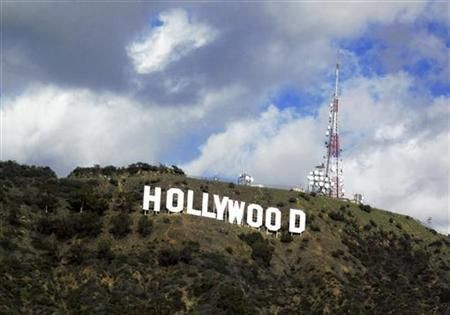Pedophiles And Child Actors: A New California Law Cracks Down, But Will Other States Follow?

California Gov. Jerry Brown on Thursday signed into law a bill that increases protections for child performers by prohibiting registered sex offenders from representing minors.
The measure -- introduced by Assemblywoman Nora Campos, D-San Jose, and backed by former child stars Todd Bridges and Corey Feldman -- also requires background checks and fingerprinting for any entertainment professional who works unsupervised with children, including photographers, talent managers, career counselors, and even publicists. Earlier provisions had only required background checks for certified acting teachers and registered talent agents.
In creating the law, California became the first state in the country to require talent professionals to obtain a “Minor’s Representation Permit” before they can represent children.
The move follows two high-profile news stories within the last year -- both of which involved California talent professionals and child abuse. Last November, the director J.J. Abrams discovered that one of his casting associates, Jason James Murphy, was a registered sex offender who had molested an 8-year-old boy in Seattle 15 years earlier. The following month, Martin Weiss, a Hollywood talent agent who represented child actors, was arrested for sexually assaulting one of his male clients over a three-year period. Weiss later pleaded no contest and was sentenced to a year in prison.
For years, advocates for child actors -- and even many former child stars -- have said that sexual abuse at the hands of talent professionals is common in the industry. Feldman, who began acting at age 3, has called it Hollywood’s “big secret.”
“I can tell you that the No. 1 problem in Hollywood was and is and always will be pedophilia,” Feldman said in an interview with ABC’s “Nightline” last year. “That's the biggest problem for children in this industry.”
California nonprofit organizations such as BizParentz Foundation and A Minor Consideration have long argued for tougher restrictions for talent professionals. Both were strong supporters of the new law, as was the Motion Picture Association of America.
But the problem of predatory talent reps is not unique to California, particularly in an age when more and more states are offering aggressive tax incentives to lure producers.
This past summer, Matthew Feeney, a talent agent based in Minnesota, was arrested for allegedly molesting two brothers -- one 9 and one 14 -- who wanted to become actors. Feeney had been working as a talent agent after a long history of predatory behavior, beginning in 1992 when he was convicted of criminal sexual conduct while he was a counselor at a Catholic youth camp. However, in Minnesota -- and indeed in many states with small but rapidly growing entertainment industries -- the laws have not necessarily caught up with the specific needs of kids working in entertainment.
In California, state legislators routinely target those needs. In 1939, it became the first state to enact a so-called Coogan Law, which requires parents of child performers to deposit a percentage of their child’s wages into a trust account. And, in 2009, then-Gov. Arnold Schwarzenegger signed into law the Kerkorian Talent Scam Prevention Act, which restricts talent reps from charging advance fees. The law makes it tougher for bogus representation agencies to prey upon children -- and their parents -- who are desperate to break into the industry.
But in the years since, few states have followed California’s lead, even as their entertainment industries have continued to grow. According to SAG-AFTRA, only New York, Louisiana, and New Mexico have adopted their own equivalents to the Coogan Law, and California remains the only state to have tackled talent-scam prevention.
Following its new law to protect child actors from pedophiles, California once again set the stage for a national conversation about the needs of kids in entertainment. Will the rest of the country listen?
© Copyright IBTimes 2024. All rights reserved.






















